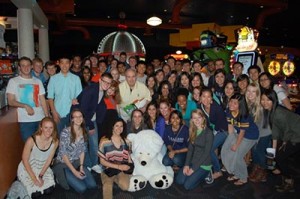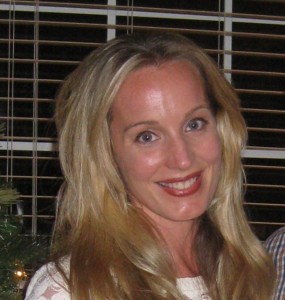 Junior Jay Shah is majoring in BHP, Finance and Computer Science. Much of his time this year has been devoted to being a member of the Texas 4000 team. He will be one of about 70 students to ride from Austin to Alaska this summer to raise money and awareness for cancer research. We sat down with Jay to find out more about him and his experience so far with Texas 4000. You can read more about Jay on his blog at jayshah.me.
Junior Jay Shah is majoring in BHP, Finance and Computer Science. Much of his time this year has been devoted to being a member of the Texas 4000 team. He will be one of about 70 students to ride from Austin to Alaska this summer to raise money and awareness for cancer research. We sat down with Jay to find out more about him and his experience so far with Texas 4000. You can read more about Jay on his blog at jayshah.me.
What have you enjoyed most about being in the BHP?
I come from a small high school, TAMS, and was used to having a close-knit community and it has been nice to have that experience again in the BHP. I transferred in my sophomore year. I really wanted to be a part of BHP and take advantage of the small class sizes and great community. BHP students are eclectic and high-caliber. It is refreshing to be around people that are so driven.
You are also a computer science major. How do your degree plans complement each other and what do you plan to do after graduation?
Both degrees challenge me in different ways and the culture of both majors is very different. I feel like I am having a very holistic experience doing both majors. In computer science, everyone is very focused just on that, but in business, there is a lot more career diversity. In computer science you are thinking very logically and technically, but it is not strategy like it is in business with the cases we work on. Computer science is almost all theory. After graduation I would like to go into consulting or tech management.
Tell me about Loku, the start-up that you are involved in?
Loku is a website and a mobile app. Their moto is helping you live local and they aim to connect people with every local aspect of their community. It was started by a BHP alumnus and I heard about them my freshman year. They reached out to me and asked me to help them with their business development. I ran the sales team for a month, helped with user acquisition strategies, helped with the PR and social media, and much more. Being at a start-up you get to wear multiple hats. I learned so much that summer – from management to sales, to marketing, and even some engineering.
What is the Texas 4000 for Cancer and why did you get involved in it?
It is a group of about 70 students who bike from Austin to Alaska to raise money and awareness for cancer. We ride for 70 days, for a total of 4,500 miles. All proceeds go to cancer research at MD Anderson, and last year they raised $350,000. The non-profit has raised around $4 million since its inception in 2004. I really wanted to do something outside of the business school and learn more about non-profits. Leadership is stressed at McCombs, but this program has helped me learn how to really connect with people and be a better leader. The people in Texas 4000 have different ways of thinking, yet we all do it for a common cause. I think the program has helped me learn how to motivate people and connect with people on an emotional level.
What is your role in it this year and what are your personal goals related to it?
I am on the program committee, so I am the program lead. We host programs in every city we stop at along the way. We share information about why we are riding, cancer statistics, and encourage people in the local community to get cancer screenings. I am in charge of that programming. I train our riders on how to connect with people when presenting and be memorable. If more people get screened earlier and donate to the cause after hearing the program, I will feel we have been successful.
Every rider is required to raise a dollar for every mile we ride ($4,500), so we have all been reaching out to our friends, families and communities. Riders in the past have raised as much as $20,000. I would love for anyone who wants to donate to the cause to help support us. No amount is too small. Every day we share stories about how cancer has affected people, so people who donate whose life was impacted by cancer can let me know and I will share that with the group. My donation site is Bit.ly/donatetojay.
You have participated in multiple case competitions during your time here. Why do you enjoy doing them?
Case competitions are great because you get the chance to apply what you learn in the classroom to real life examples. It isn’t just about how strong of a solution you have, it is also about how well you can convey your ideas and how strong of a speaker you are. It is also a great creative outlet, where you can take what you learn and find new ways to apply that information to solve problems. I find it interesting to learn how companies critique ideas to help prepare for the workplace. Judges will ask certain questions that you never really thought about. It is also a great way to work with a team and learn more about your personal strengths and weaknesses.


